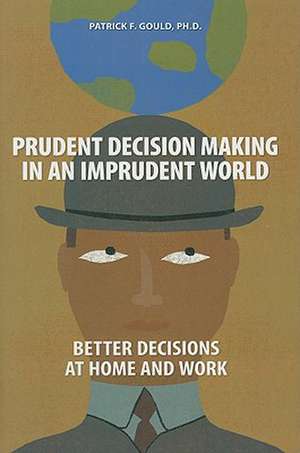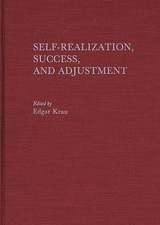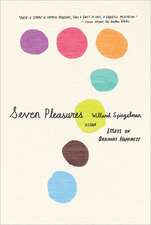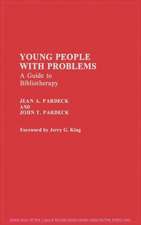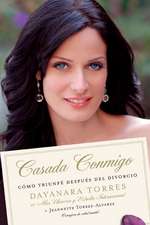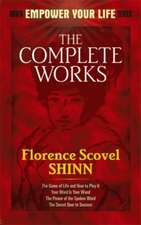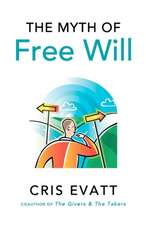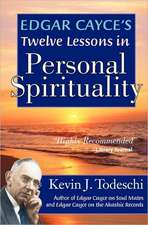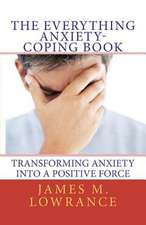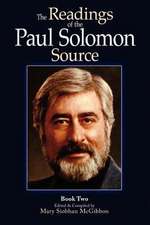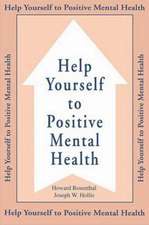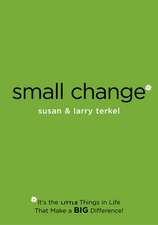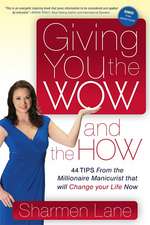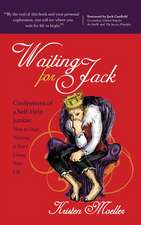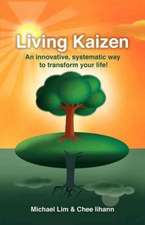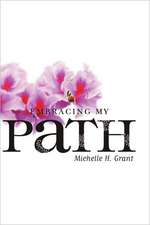Prudent Decision Making in an Imprudent World: Better Decisions at Home and Work
Autor Patrick Goulden Limba Engleză Hardback – 7 iul 2009 – vârsta până la 17 ani
Preț: 364.40 lei
Preț vechi: 502.03 lei
-27% Nou
Puncte Express: 547
Preț estimativ în valută:
69.74€ • 72.54$ • 57.57£
69.74€ • 72.54$ • 57.57£
Carte tipărită la comandă
Livrare economică 14-28 aprilie
Preluare comenzi: 021 569.72.76
Specificații
ISBN-13: 9780313372315
ISBN-10: 0313372314
Pagini: 208
Dimensiuni: 156 x 235 x 25 mm
Greutate: 0.48 kg
Editura: Bloomsbury Publishing
Colecția Praeger
Locul publicării:New York, United States
ISBN-10: 0313372314
Pagini: 208
Dimensiuni: 156 x 235 x 25 mm
Greutate: 0.48 kg
Editura: Bloomsbury Publishing
Colecția Praeger
Locul publicării:New York, United States
Caracteristici
Provides dozens of features on historic events affected by bad decision making, such as the 1929 stock market crash, the Challenger disaster, and the implosion of Enron
Notă biografică
Patrick F. Gould is a retired U. S. Marine Corps officer and combat veteran who was an educational researcher at the University of Wisconsin-Madison for the past ten years. He is the founder of Major Decision Consulting, LLC, in Middleton, WI.
Cuprins
AcknowledgmentsIntroduction1. The Prudent Decision Maker Living Among Irrational Conservatives2. Prudent Decision Makers Seek a Balanced Perspective3. Prudent Decision Makers Are Self-disciplined4. Prudent Decision Makers Are Not All Former Valedictorians5. Prudent Decision Makers Are Students of History6. Prudent Decision Makers Never Violate the Principle of Security7. Prudent Decision Makers Are Cultural Contrarians8. Prudent Decision Makers Seek Informational Clarity and Relevance9. Prudent Decision Makers Never Sweat the Small Stuff10. Prudent Decision Makers Possess Humility and Temperance11. Prudent Decision Makers Understand That No Decision Is Still a Decision12. Prudent Decision Makers Are Creative13. Prudent Decision Making in Education14. Prudent Decision Makers Know That While Money Does Not Buy Happiness, Neither Does Happiness Buy Money15. Prudent Decision Makers Learn the Cost of Every Free Lunch16. Semper Paratus: The Always-Ready, Financially Prudent Decision Maker17. Prudent Decision Makers Are Epistemological OptimistsNotesIndex
Recenzii
Gould is a retired US Marine officer and former educational researcher at the U. of Wisconsin, and he employs historical examples, researchbased principles and practical advice to help general readers identify and avoid bad decision-making skills. The author uses examples such as Napoleon's winter attack on Russia and the 1929 stock market crash to explain how qualities such as humility, self-discipline and critical analysis are instrumental to effective decision-making skills. Each chapter defines prudent decision-making skills in such specific realms as education, security and creativity.
Prudent Decision Making reads more like thoughtful and critical analysis of decision-making than it does a guidebook or manua . . . While the book posits many conclusions that are already well established in the field of behavioral theory, the applications the author provides give life to the raw philosophy. Gould provides a chance for any decision-maker to reach better conclusions on a consistent basis.
Prudent Decision Making reads more like thoughtful and critical analysis of decision-making than it does a guidebook or manua . . . While the book posits many conclusions that are already well established in the field of behavioral theory, the applications the author provides give life to the raw philosophy. Gould provides a chance for any decision-maker to reach better conclusions on a consistent basis.
